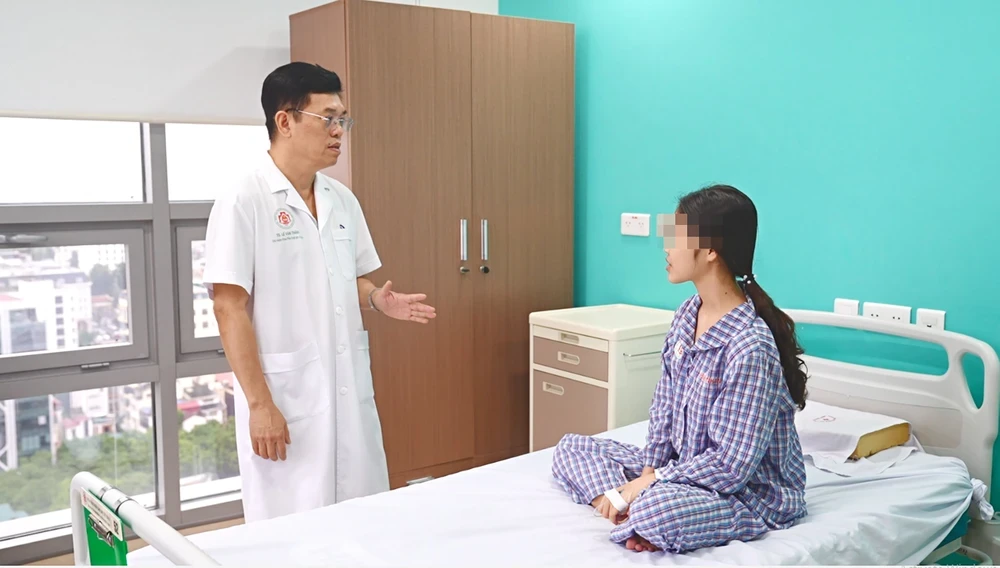After 1 week of transplantation, the health of both the donor and recipient was stable. The recipient's health recovered well, the transplanted liver functioned normally, and he moved quickly.

On November 24, 108 Military Central Hospital announced the first successful implementation of a blood-type incompatible liver transplant for a child.
Major General Le Huu Song - Director of 108 Central Military Hospital said that on October 30, 2023, the hospital's doctors performed a liver transplant with different blood types between the donor and recipient (the grandmother donated her liver to her granddaughter).
This is the first time that 108 Military Central Hospital has applied this technique to a child (15-year-old patient).
In Vietnam, ABO-incompatible donor transplantation has been performed in kidney transplant patients and in liver transplant groups in children, but has not yet been performed in liver transplantation in adults. Although adult immunity is more complex than in children and the number of liver transplant patients is increasing, the source of donor livers is limited, so the implementation of ABO-incompatible liver transplantation helps increase the chance of survival for people needing liver transplants.
A 15-year-old female patient was diagnosed with cirrhosis 6 years ago of unknown cause. Recently, the patient went for a check-up and discovered a liver tumor that was diagnosed as hepatocellular carcinoma on a background of cirrhosis. The patient underwent hepatic embolization in preparation for a liver transplant.
Associate Professor Le Van Thanh - Director of the Institute of Digestive Surgery (108 Central Military Hospital) said that in this case, tumor removal surgery is not feasible because the patient's liver function is poor due to cirrhosis and an enlarged spleen. Therefore, a liver transplant is the best option for the patient.

The special feature of this transplant is that it was an ABO incompatible liver transplant with the donor being the grandmother. Cases of incompatible blood types will be treated differently from cases of the same blood type.
Associate Professor Le Van Thanh shared about the difference of a blood group incompatible liver transplant: 3 weeks before the transplant, the patient's blood group antibody titer will be assessed, then the antibody titer will be adjusted, desensitization treatment with the immunosuppressant retuximab combined with plasma filtration to reduce the donor's blood group antibody concentration to 1/16, then the transplant will be performed. The transplant process, technically, is no different. Currently, there are immunosuppressant drugs that can treat patients with blood group incompatibility, with 5-year survival results equivalent to patients with the same blood group.
After intensive pre-transplant preparation, the liver transplant team performed laparoscopic surgery to remove the right liver graft from a living donor to transplant the liver into the female patient. After 8 hours, the liver transplant was successfully performed. The patient was extubated in the operating room.
After 1 week of transplantation, the health of both the donor and recipient was stable. The donor was discharged from the hospital after 1 week of transplantation. The recipient's health recovered well, the transplanted liver functioned normally, and he moved quickly.
The patient emotionally shared: “When I discovered the disease, I felt like I was falling down and couldn’t get up. But thanks to the doctors and nurses at the hospital who encouraged me and gave me positive energy to continue fighting the disease. I thank the doctors for giving me the opportunity to live like today. My biggest wish is to be healthy and go back to school with my friends.”
According to Vietnam+